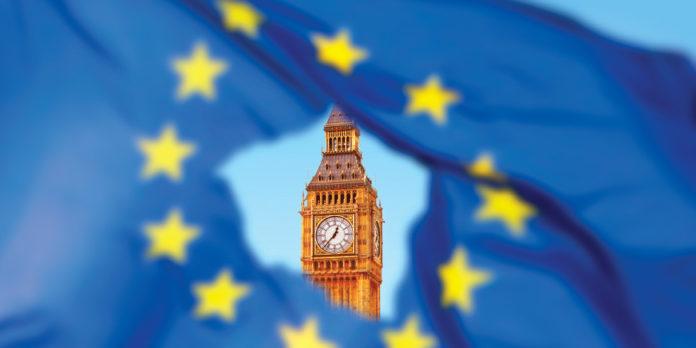Brexit is the food industry’s biggest battle since the Second World War, David Burrows learns
If Ian Wright, director-general at the Food and Drink Federation, had aimed to cast a shadow over the first few hours of November’s Food Matters Live (FML) event in London then he accomplished his mission. Leaving the EU is the most serious challenge the food industry has faced since the Second World War, he claimed. “We are not going to run out of food – the issue is choice and availability,” he added.
Brexit has been an ugly battle from day one, with little sign of negotiations moving on to the all-important second phase when talk can turn to trade. For FMCG wholesalers, there are a number of Brexit headaches to grapple with, chief among them being the threat of new, steep, complex World Trade Organization (WTO) tariffs, as well as security of supply.
If there is no tariff-free trade deal in place when the UK leaves the EU in March 2019, we would (at best) be able to fall back on WTO tariffs. For many sectors this is not an issue – businesses would be looking at 6% or so in additional tariffs, which most can cope with.
For food companies, the hikes will be much harder to swallow: the average cost of produce imported by retailers from the EU would increase by 22%, according to the British Retail Consortium.
Throw in the inflationary pressures from sterling’s slump pushing up import prices, a potential shortage in labour plus long delays at customs, and it is easy to see why the experts are so gloomy.
The government, however, continues to look on the bright side. Transport secretary Chris Grayling suggested the UK will simply grow more food, a statement for which he has been widely ridiculed.
The farming minister George Eustice has been similarly upbeat: “The food and farming sector will be okay if there is no trade deal with the EU and we revert to WTO rules on trade with them.”
However, David Read, chairman of consultancy Prestige Purchasing, said that to suggest those in the sector are less at ease than the government would “constitute a gross understatement”.
It is not just the cost that food suppliers will be concerned about. Listening to trade experts at FML, it seems like lawyers are in for a bumper payday. For example, there are 10,600 different possible tariffs on a Mars Bar.
“It is very complicated,” said Brian Kelly, partner at law firm Covington and Burling, “and businesses will need to upskill on this.”
Many will also need to start thinking now about contingency planning in the event of supply issues and rising prices. A Chartered Institute of Procurement & Supply survey showed that 40% of UK businesses with EU suppliers have begun the search for UK-based suppliers to replace their EU partners, up from 31% six months ago.
The advice from experts at FML is to not pull the plug yet. Instead, start scoping out the potential for more local suppliers. Food and drink companies have “big and complex supply chains so they need to make a decision early,” said Declan McHugh, associate director at Lexington Communications.
Nevertheless, even if trade talks do go ahead, it still leaves the UK with a mountain to climb. Sometimes, it is hard to look on the bright side.








